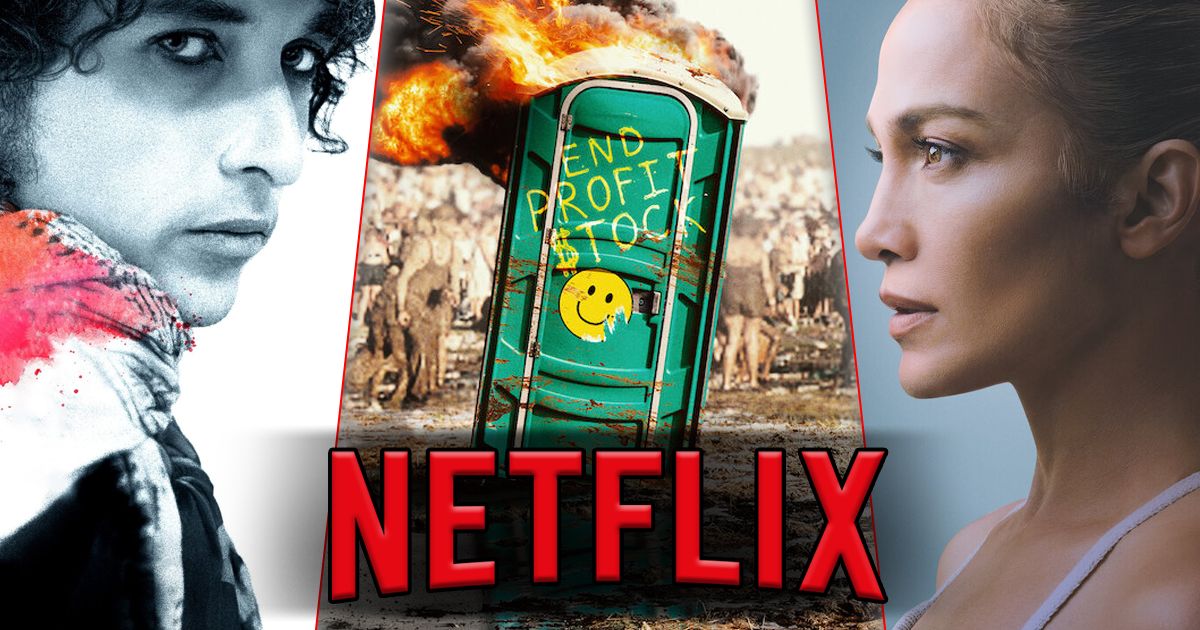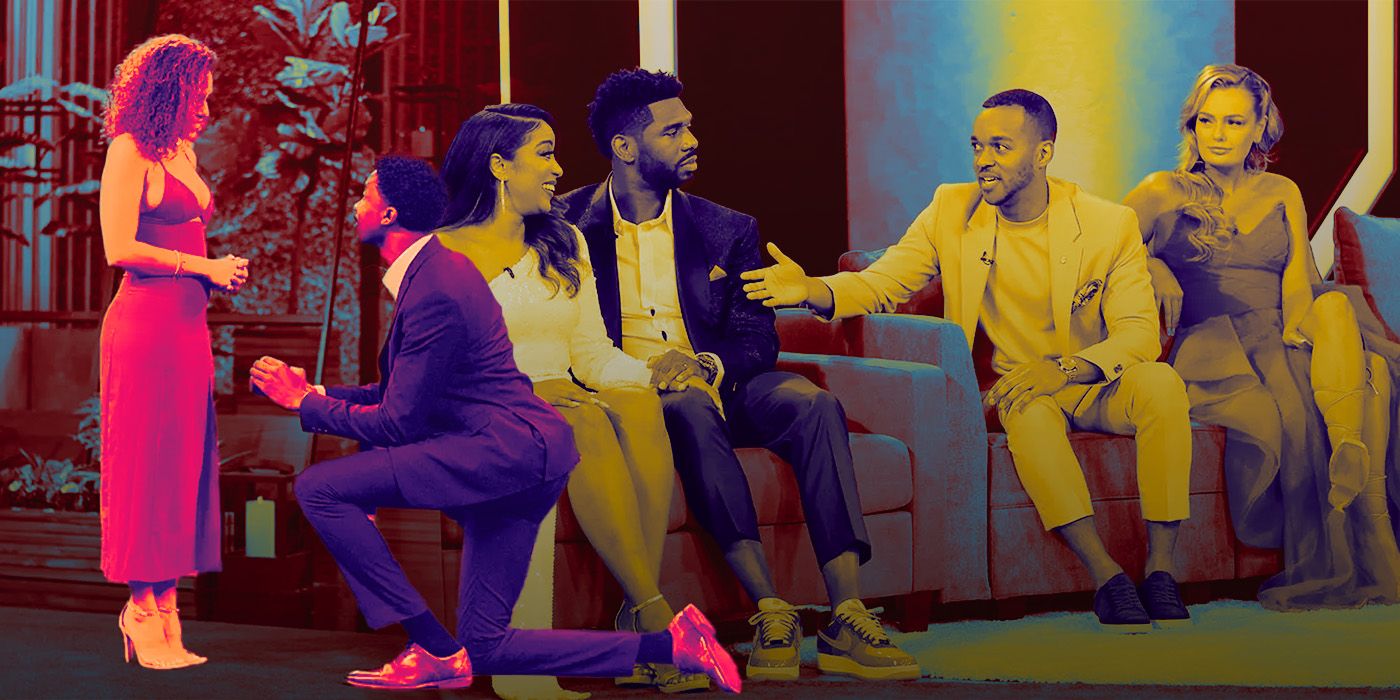Summary
- Forced marriages in the finale have become a big mistake for
Love Is Blind
. Not everyone says “I do” – public rejections at the altar are heartbreaking for many contestants. -
Love Is Blind
has lost its status as a social experiment. Contestants know the formula and can manipulate it to their advantage. - The pods create a false “honeymoon period” – real personalities emerge post-wedding, leading to relationship struggles.
Before “social distancing” was even a common phrase, Chris Coelen was onto something when he created the concept for the Netflix reality dating series Love Is Blind back in 2018. The show follows 15 men and 15 women as they date one another in rooms separated by a thin wall. On the very first day, all the men and women get to know one another through a semi-blind speed-dating process, but afterward, they can pick and choose the individuals they want to continue “dating.” By the end of the 10-day experience, some couples get engaged, meet one another in person for the first time, and go on a week-long group vacation with the other couples. Then, those who are still single by the end simply go back home.
The show premiered in February 2020, and after everyone else in the world was told to stay indoors and keep their distance from others, the second season received the green light. Now, Season 6 of Love Is Blind is currently unfolding on Netflix, but after four years of the same situation, plenty of critics and fans are starting to see flaws in the system. Everyone knows the basic formula of the show, so we have to ask ourselves if the people submitting applications to the show are in it for love, a ring, a free trip, or their 15 minutes of fame. Let’s get into the fundamental flaws of Netflix’s Love Is Blind.
Why Is a Forced Marriage the End-Game?
People Can (and Do) Still Say ‘No’ At the Altar
Love does not always end in marriage, but as far as the producers of Love Is Blind are concerned, it does. After four weeks of living together — one week spent on vacation and three more spent sharing an apartment — the couples make their way to the altar and make a huge decision in front of their friends and family. From the creator’s perspective, the drama that ensues when everyone is under one roof loudly voicing or whispering their opinions is genius. Not every fan likes the huge life-altering event being the pinnacle of the reality dating show.
Standing in front of everyone they care about and knowing that no one else (except those who also went through the full experience) can ever understand how so much love and emotion came out in such a short amount of time is monumental. More couples have split up at the altar in front of everyone than both parties saying, “I do.” This public rejection and possible humiliation is heartbreaking and even traumatizing for some. Perhaps the creators can take a look at the numbers below and decide if an official engagement is the better way to go or if they should rework the show altogether to make it where all the cast members meet after the pods in a Big Brother-like situation to know one another after blindly dating for a week.
|
Season 1 |
Season 2 |
Season 3 |
Season 4 |
Season 5 |
|
|
# of Couples Who Got Engaged* |
8 |
8 |
5 |
7 |
3 |
|
# of Couples Who Split Up Before the Wedding |
3 |
3 |
0 |
4 |
1 |
|
# of Couples Who Split Up at the Altar |
3 |
3 |
3 |
1 |
1 |
|
# of Couples Who Got Divorced |
0 |
2 |
0 |
0 |
0 |
|
# of Couples Still Together in February 2024 |
2 |
0 |
2 |
3** |
1 |
* Some couples who were engaged were not featured during the group honeymoon or afterward.
** Zack Goytowski and Irina Solomonova got engaged but called things off before leaving their trip. Goytowski later got engaged to and married another contestant, Bliss Poureetezadi; they are still married.
Why Guilty Pleasure TV is So Addictive
Some TV series are objectively more well-made than others, but there’s nothing wrong with some guilty pleasure TV. Here’s why it’s so addictive.
Love Is Blind Is No Longer a Social Experiment
The Contestants Know What to Expect
When Love Is Blind was first released, it was a true social experiment. Nothing like it had been aired on TV, and no one knew what to expect. Audiences saw the aftermath of these Season 1 relationships unfold more than two years after everything happened between the couples. Now that millions of people have seen the series and seemingly everyone at least knows it exists (thanks to it practically living on Netflix’s Top 10 TV Shows chart for several weeks at a time), it is not much of an experiment anymore.
Sure, 30 single men and women going on a show to date to potentially fall in love is a bit of an experiment, but after several seasons, too many variables are known. Between the 10-day process, the group vacation, and the living situation leading up to the wedding day, there are many things that the cast members can manipulate to their advantage. Some individuals, like Irina Solomonova (Season 4), Abhishek ‘Shake’ Chatterjee (Season 2), and Carlton Morton (Season 1), did not seem genuinely happy with their partners. Still, they chose to continue with the televised relationship until things inevitably ended.
Matthew, from Season 6, mentioned to a woman in the pods that he is not there “to be a C-list celebrity,” nudging at the fact that people go on reality dating shows to get some exposure for whatever reason. While his comment caught her off guard, he had a point. The show is no longer a true “social experiment,” and viewers should think of it as just another reality dating show.


19 Best Music Documentaries on Netflix to Watch Right Now
If you want to pull back the curtain on the music industry, check out these Netflix documentaries.
People’s Perception of Themselves Clouds All Judgment
Secrets Unravel Outside the Pods
We all want to think the best of ourselves, and sometimes, we paint a prettier picture of our lives when giving out information to acquaintances and even friends. Now, can you imagine telling a stranger, through a wall, all about your most personal thoughts and experiences while having cameras capture your every expression?
The men and women who go on Love Is Blind know they need to get to the nitty-gritty details of their lives pretty fast because that wedding date is just a little over a month away, but during that time, many people will find themselves circling around a topic or avoiding it altogether. For instance, Amber Pike (Season 1) was not very forthcoming about her debt while in the pods, and Izzy Zapata (Season 5) felt like he was in the same boat when it came to putting a number to the amount of money he had and makes.
The pods create a “honeymoon period” for couples because they can put on the best versions of themselves. They can give one another gifts and go on dates (even though they are still confined to the pods), and very few real-world distractions are coming between them. However, once outside the pods, mannerisms and real personalities shine. Then, after the two move in together, go to work, get back on social media, and meet one another’s friends and families, their authentic selves finally come out. This is when the couples start to pull away from one another. Love may have been blind, but too many people hid their true selves from view, causing the relationship to eventually crumble. Love Is Blind is available to stream on Netflix.
This story originally appeared on Movieweb

